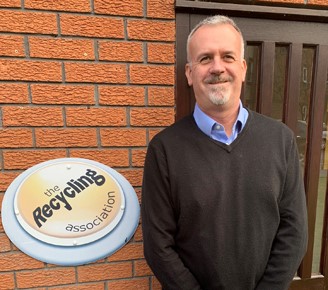There has been a huge reaction to the measures in Rishi Sunak’s budget yesterday (11 March) which effect the waste and recycling sector.
On one hand, the £200 a tonne tax on plastic packaging (see letsrecycle.com story) containing less than 30% recycled content has been broadly welcomed, with many waste and recycling firms saying it will stimulate demand.
Others however have said the rise in duty on red diesel – which many operators use to power machinery – is a major blow for the recycling and waste management sector and will lead to increased service costs to tax-payers and businesses.
See below for reaction from Veolia, Biffa, Suez, Viridor and others.
ESA warns over red diesel tax hike
Representing the waste management sector, Jacob Hayler, executive director of the Environmental Services Association, said the tax will “unlock future investment” but warned over red diesel tax increases.
“The ESA and its members fully support the details of the Plastics Tax announced by the Chancellor today. A levy on manufacturers from 2022 of £200 per tonne for plastic packaging that doesn’t contain at least 30 per cent recycled content will help to unlock future investment in British recycling infrastructure and allow the resources and waste sector to re-shore valuable materials currently lost to export markets.
“But it’s a mixed picture because the rise in duty on red diesel announced by the Chancellor today is a major blow for the recycling and waste management sector, which relies on diesel fuels to keep vital public facilities, like recycling centres and waste transfer stations, running efficiently.
“Our sector is as vital to society as agriculture, rail and fishing, so to not include the sector in the retained relief is a clear oversight by Government and a snub to an industry that, since the early 1990s, has reduced its carbon emissions by over seventy per cent. At the moment, there is no viable low or zero carbon alternative to the many specialist vehicles used by our essential sector.”
CIWM concern over fixed tax rate
Pat Jennings, CIWM’s head of policy, knowledge & external affairs, says that while she welcomes the tax, there are concerns over it being set a fixed rate in a market “heavily dictated” by oil prices.
“On the proposals for the plastic packaging tax, which will come into force from April 2022, CIWM welcomes the confirmation that it will apply to both domestic manufacturers and importers and will include filled packaging,” she said.
Ms Jennings added: “This should ensure that UK manufacturers are not disadvantaged and that the tax does not incentivise the offshoring of filling operations to avoid the tax. At £200 per tonne, the level of the tax is in the range deemed necessary to incentivise the uptake of recycled plastic, but CIWM and others have raised questions about the appropriateness of a fixed tax to change behaviour in a market that is heavily dictated by global oil price fluctuations.”
Viridor welcomes market ‘clarity’
Viridor’s managing director, Phil Piddington said the company welcomed the clarity on plastics tax which confirms the Government’s commitment to prioritising recycling and the greater UK ambition of a circular economy.
“ It’s this kind of commitment which creates the demand needed to unlock the crucial investment in recycling infrastructure. Viridor has announced its £65m plastics recycling and reprocessing plant at Avonmouth, near Bristol, and is exploring a further two reprocessing plants at Ardley in Oxfordshire and Dunbar in Scotland which will go a long way to addressing the reprocessing gap in the UK and help us to retain a valuable resource which can be used instead of virgin plastic, ending the export of recyclable plastic.”
He added: “One key issue where regulation needs reform is the Packaging Export Recovery Note (PERN) system which risks using UK consumers money to invest in recycling infrastructure abroad. Viridor wants to see policy that ensures of valuable resources are returned to the UK economy providing regional infrastructure investment and local jobs.”
Veolia points to ‘game changing’ heating policies
Richard Kirkman, chief technology and innovation officer at Veolia UK and Ireland, said the heat network policies in the budget will be a “game-changer” for the fight against climate change.
He noted: “The gas and heat networks policies being brought forward are game changers for our climate emergency. By providing significant seed investment for heat networks we have an opportunity to grapple with our gas addiction – a real deliverable, pragmatic solution to fossil based ‘natural’ gas which will allow us to decarbonise the heating in homes and businesses around the UK.
“We operate three of the largest schemes in the UK and are able to use that technology and deployment experience to spread and scale the green heating option across the country, supplying communities in fuel poverty with reliable, affordable, low carbon heating. This will ensure Britain stays great and green.”
Biffa hails ‘step in the right direction’
Biffa responded to the tax by emphasising the importance of increases to the plastics packaging tax in future years.
“As a leading UK sustainable waste manager we welcome the environmental measures in the Chancellor’s budget including the plastics packaging tax, which we believe is a step in the right direction to encourage manufacturers to use more recycled materials.
“It is important that this tax increases in future years and the extra funds are re-invested in recycling to keep driving up recycled content use and avoid manufacturers stopping at 30%.
” The levy supports our strategy to invest in building the UK’s recycling infrastructure, enabling greater progress towards achieving a circular economy.”
Suez UK says budget sends ‘a clear message’
The £200 a tonne tax was described by John Scanlon, CEO of Suez Recycling and Recovery, as a “clear message that this government is serious about delivering a circular economy for Britain”.
“It is right that, as a society, we tackle the scourge of single-use items by taxing a throw-away culture and rewarding a re-use and recycle economy,” he said.
Mr Scanlon added: “At times oil price fluctuations may reduce the influence of the tax on the market and Government will therefore need to ensure that extended producer responsibility and deposit return schemes are implemented to complement the tax and help deliver more closed loop solutions.”
Ellin praises ‘game changer’ but warns over detail
Simon Ellin, chief executive of the Recycling Association, also said the legislation will be a game changer but warned that the “devil will be in detail”.
“The introduction of a Plastic Packaging Tax from April 2020 of £200 per tonne is a gamechanger. It is an amount that will stimulate the use of the 30% recycled content in plastic packaging the
Government wants to achieve and lead to the development of more plastic recycling infrastructure in the UK.
“However, the devil will be in the detail, particularly around the scope of what is included in the tax. While I welcome the Plastic Packaging Tax, I wonder if there should be a similar tax introduced on other packaging materials such as paper and cardboard if it does not include 30% recycled content? This would help to stimulate markets for other materials too.”
Mixed reaction from Ecosurety
Robbie Staniforth, head of policy at Ecosurety, said he welcomed large parts of the legislation but that it is missing some vital components.
“We’re pleased to see that the Government is again consulting on the plastic packaging tax. There is a lot of work to be done before it is ready to be launched in 2022.
“At first glance, it looks like HM Treasury have got a handle on the key failings of their previous proposal. We’re glad to see they have recognised our, and any others’ point, that excluding imported filled packaging from the tax could have led to packaging production being offshored. We look forward to digging into the detail in the coming months.”
“We are disappointed that packaging recycling targets were not included in the announcement made today. Not having foresight of recycling targets for 2021 and 2022 further exacerbates the issues with the current system.”
Clarity looks to detail to avoid uncertainty
Martin Trigg-Knight, head of packaging at Clarity Environmental said the compliance specialists welcome the agenda to tackle problematic waste and hopes the details will follow soon.
“We welcome the government’s agenda to tackle problematic plastic waste by increasing the incentives for purchasing packaging with recycled content. Now that the direction has been confirmed, we hope the mechanics will follow as soon as possible as there are still uncertainties around how the tax will work – not least how 30 per cent recycled content will be proven, and how the money raised will be reinvested into recycling.
“It is clear that the plastics tax could result in a significant increase in costs for some manufacturers and importers, and those businesses must start preparing now. With Brexit, coronavirus, and packaging regulation reforms also affecting these businesses, it is vital that they are supported through the changes ahead.”
The post Budget 2020 – Reaction blog appeared first on letsrecycle.com.
Source: letsrecycle.com Packaging











